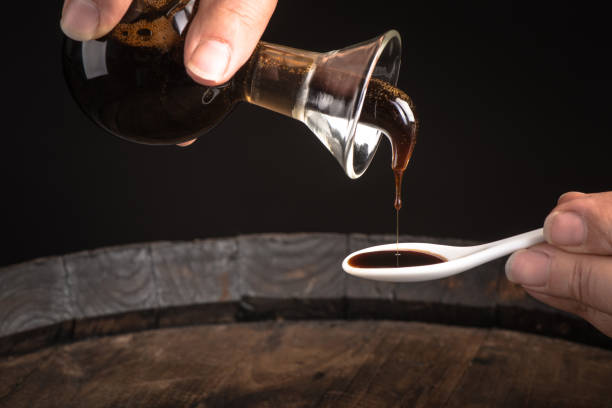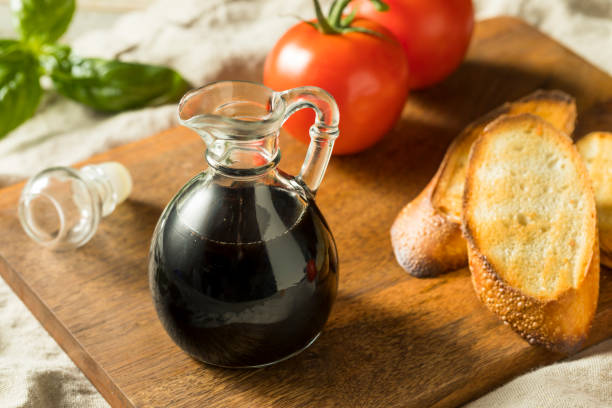Balsamic vinegar is a popular ingredient used in various recipes, from salad dressings to sauces and marinades. It’s a staple in many kitchens due to its sweet, tangy, and complex flavor. One of the most common questions people ask about balsamic vinegar is how many carbs it contains.
Carbohydrates play an important role in our diet as they provide energy to the body. Understanding the amount of carbs in food is essential for people who are watching their carbohydrate intake, such as those following a low-carb diet like the ketogenic diet.
The carb content of balsamic vinegar is relatively low compared to other vinegars. One tablespoon (15 ml) of balsamic vinegar contains approximately 2 grams of carbs. It’s important to note that this carb count is considered minimal and is unlikely to have a significant impact on blood sugar levels.
The amount of carbs in balsamic vinegar can vary depending on the brand and the specific type of vinegar. However, most balsamic vinegars contain a very small amount of carbs, making them a great option for those following a low-carb diet.
A 1-tablespoon serving of balsamic vinegar typically contains around 2 grams of carbohydrates. This may not seem like much, but it can quickly add up when used in large quantities. So, it’s important to keep an eye on portion sizes and to use balsamic vinegar sparingly if you are following a low-carb diet.
It’s also important to note that many commercial balsamic vinegars contain added sugars, which can increase the carb content. So, it’s best to choose a high-quality, aged balsamic vinegar that does not contain any added sugars. This will help to keep the carb count low and ensure that you are getting the most flavorful and authentic balsamic vinegar possible.
The low carb content in balsamic vinegar is due to the fact that it is made from a blend of grape must and wine vinegar. Grape must is made from the juice, skins, and seeds of grapes and is naturally high in sugars. However, during the production of balsamic vinegar, the grape must is cooked and aged, which reduces the sugar content and increases the acetic acid content.
Balsamic vinegar is aged for several years in wooden barrels, which helps to develop its complex flavor and sweetness. The longer it is aged, the more concentrated and sweeter it becomes. As a result, some varieties of balsamic vinegar may have slightly higher carb counts than others, depending on their level of aging.
In addition to its low carb content, balsamic vinegar also has several health benefits. It is rich in antioxidants, which help to protect the body against cellular damage and reduce the risk of certain chronic diseases. Balsamic vinegar has also been shown to help regulate blood sugar levels, which is especially beneficial for people with diabetes.
Balsamic vinegar is also low in calories, with just 11 calories per tablespoon. This makes it an ideal ingredient for people watching their calorie intake. Additionally, its distinct flavor profile means that you can use less of it in a recipe, which helps to keep the calorie count low.
In conclusion, balsamic vinegar is a low-carb ingredient that is packed with flavor and health benefits. With only 2 grams of carbs per tablespoon, it is a great option for those following a low-carb diet. Additionally, its low calorie count and high antioxidant content make it a healthy addition to any diet. So, the next time you reach for the bottle of balsamic vinegar in your kitchen, remember that it is a versatile and healthy ingredient that is a great addition to any meal.

 Home
Home Health
Health Diet & Nutrition
Diet & Nutrition Living Well
Living Well More
More












